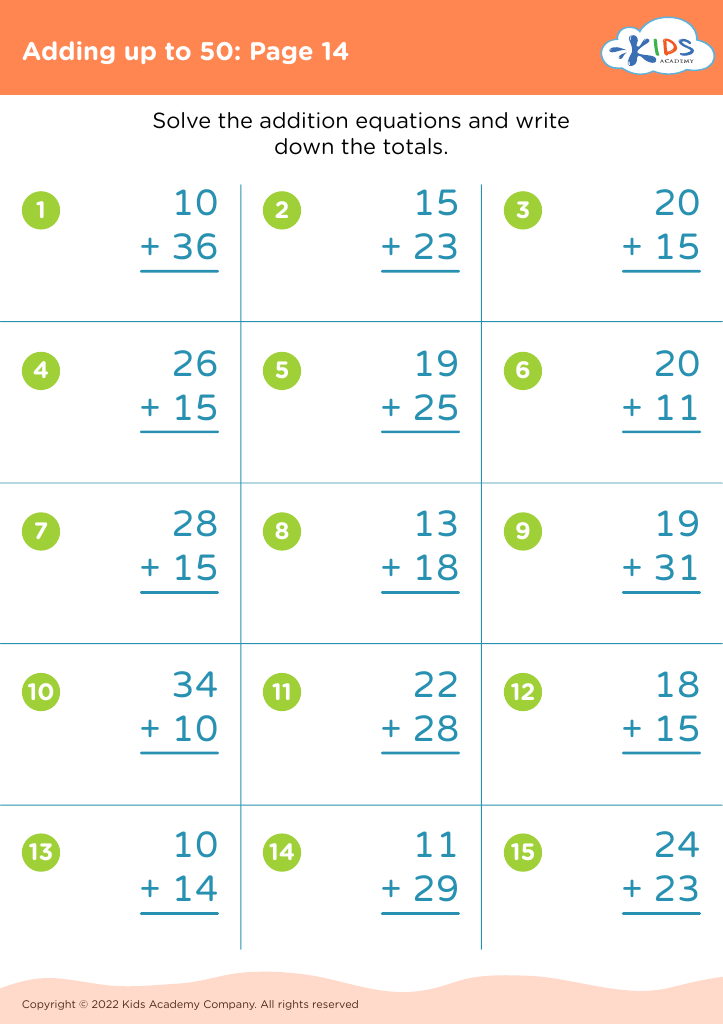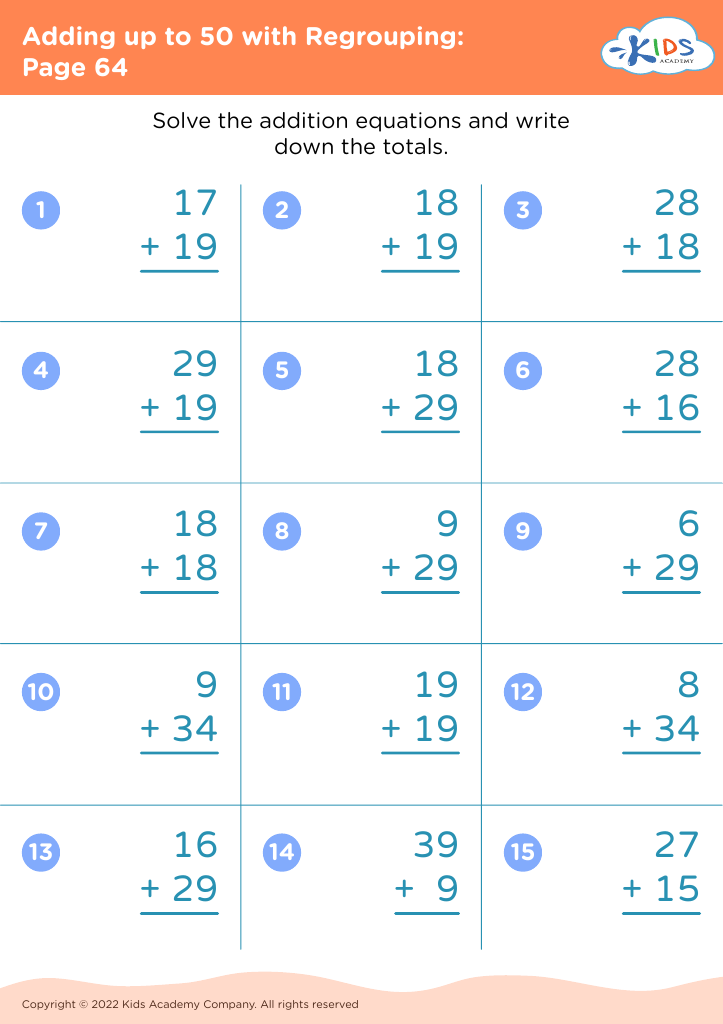Math skills improvement Math Worksheets for Ages 4-8
7 filtered results
-
From - To
Boost your child's math skills with our engaging Math Worksheets designed for ages 4-8! Our printable resources nurture critical learning abilities, offering a fun and interactive way to practice essential math concepts. These worksheets cover a variety of topics, including counting, basic addition and subtraction, number recognition, and shape identification, all striving to align with early grade math standards. Each activity is thoughtfully crafted to build confidence and competence while keeping young learners entertained. Perfect for at-home practice or classroom reinforcement, our Math Skills Improvement worksheets are an invaluable tool to enhance your child's mathematical understanding and foster a lifelong love for learning!
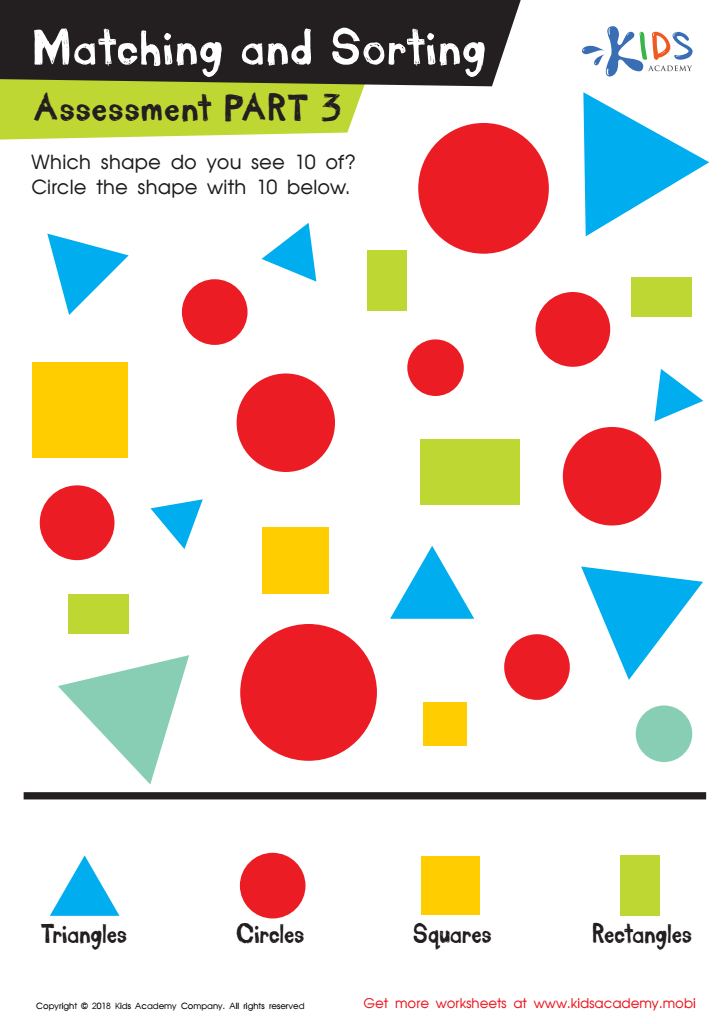

Matching and Sorting for Kindergarten: Assessment 3 Worksheet
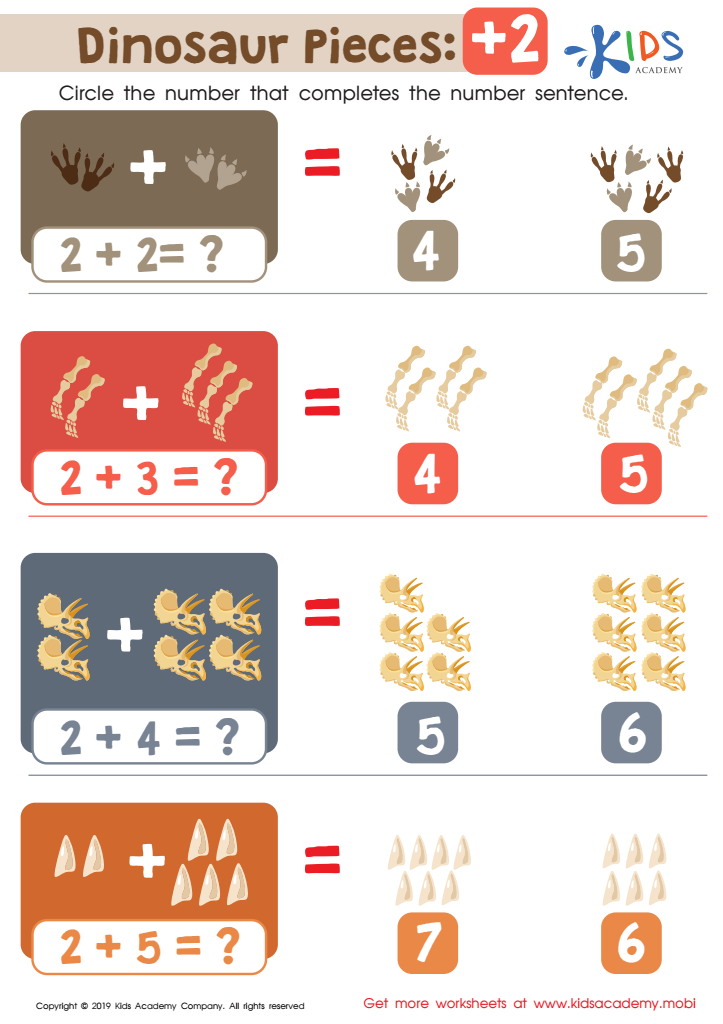

Dinosaur Pieces: +2 Worksheet
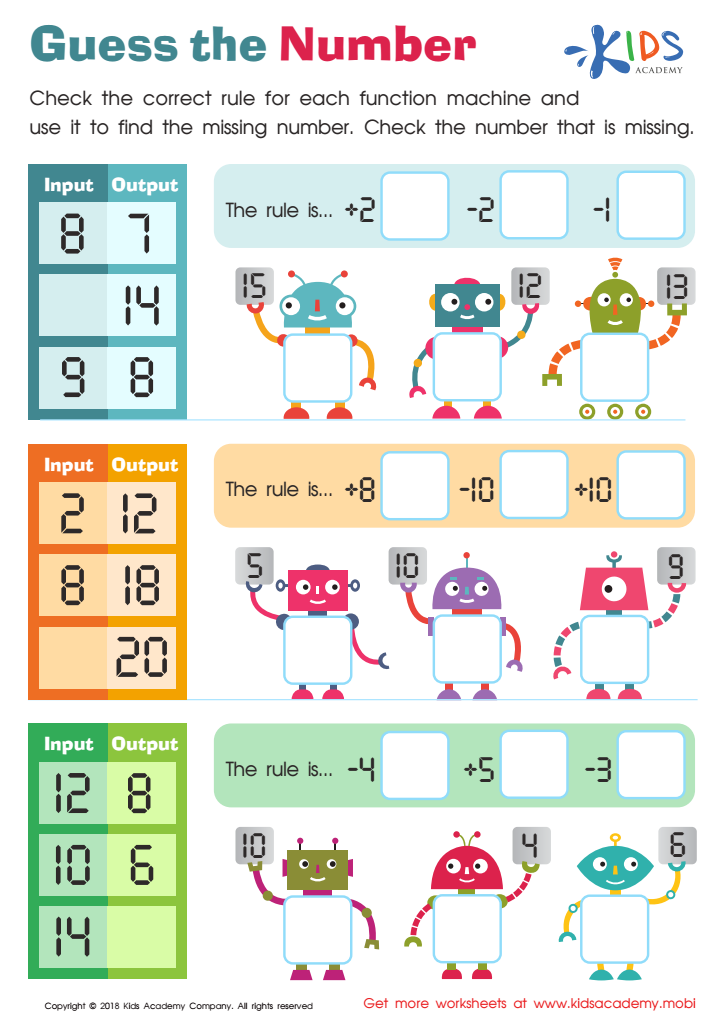

Guess the Number Worksheet
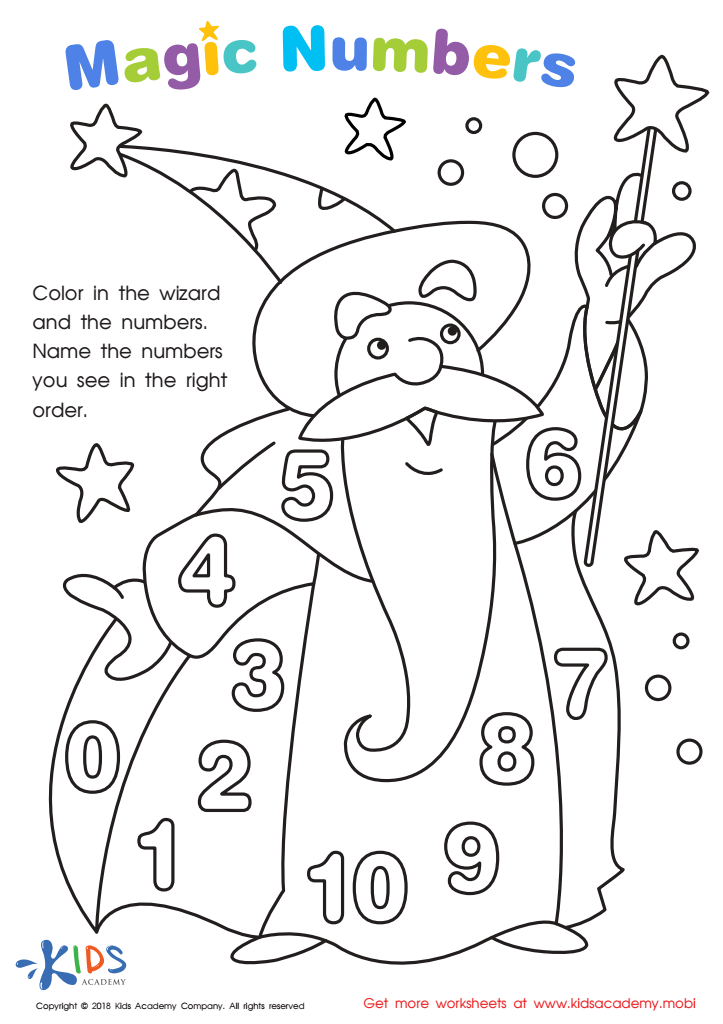

Magic Numbers Worksheet
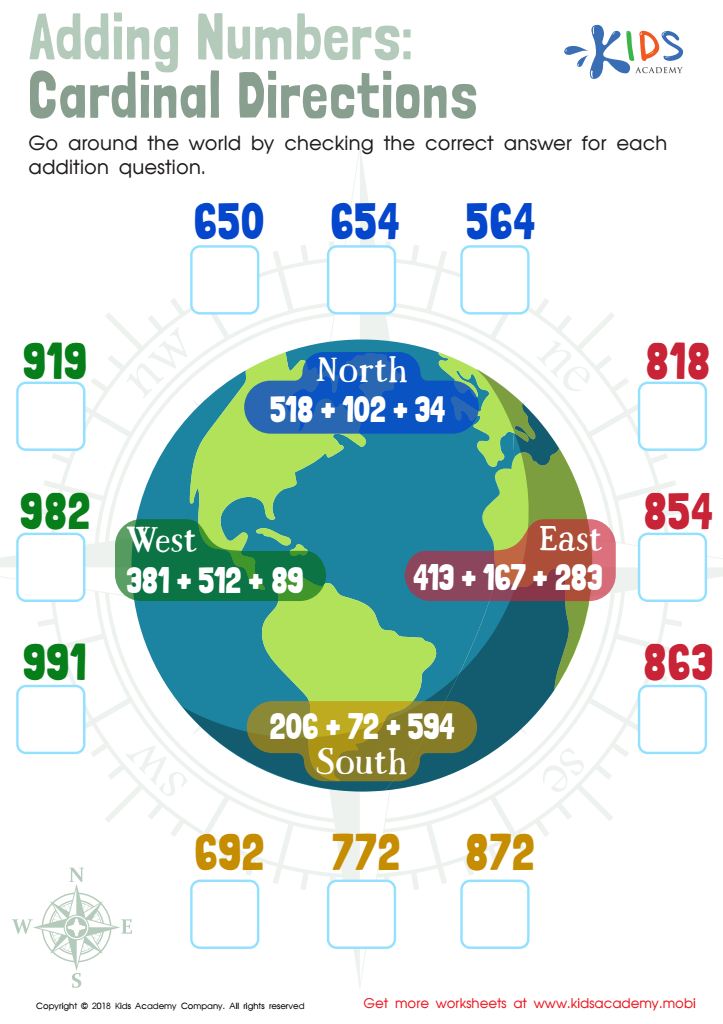

Adding Numbers: Cardinal Directions Worksheet
Parents and teachers should prioritize math skills improvement for children aged 4-8 because these foundational skills significantly influence future academic success. Early childhood is a critical period for cognitive development, and math concepts introduced during these years form the basis for complex problem-solving abilities used later in life.
Enhancing math skills at a young age fosters critical thinking, boosts confidence, and encourages a positive attitude towards learning. Children who grasp basic math concepts are more likely to excel in subjects like science and technology, which are increasingly important in our modern world. Additionally, math skills are essential for everyday tasks, from budgeting and time management to understanding patterns and shapes in the environment.
Math also promotes a growth mindset; overcoming challenges in this subject teaches perseverance and resilience. Furthermore, engaging with math through games and hands-on activities makes learning enjoyable, establishing a lifelong love for learning.
Lastly, strong math skills help close achievement gaps, particularly for disadvantaged children. Teachers and parents play a crucial role in nurturing these skills, ensuring that all children have equal opportunities to succeed. By emphasizing math improvement in early education, they pave the way for a brighter academic future.
 Assign to My Students
Assign to My Students

